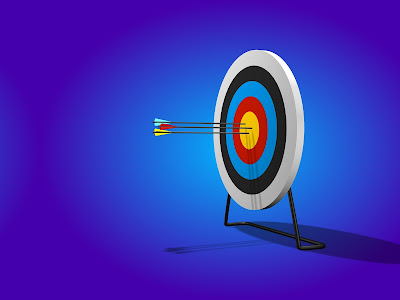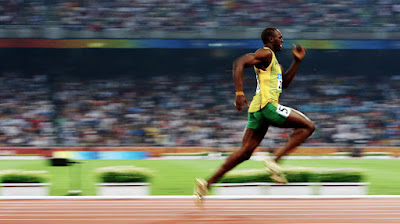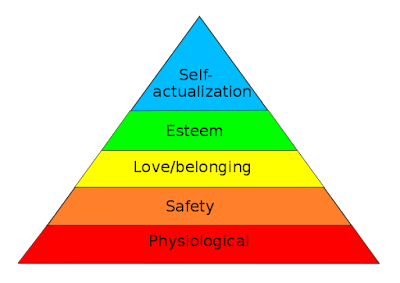How to Attain Expertise in Your Career Through Deliberate Practice
In the summer of 2008, during the Beijing Olympics, Michael Phelps had gone through his usual routine before his swimming event. He had done his 25-meter sprint in the pool to raise his heartbeat. After that, he put on his headset for his songs playlist before a race.
He was getting ready for the 200-meter butterfly race. Minutes later, the athletes were beside the pool, ready for the event. Moments later, the gun went off and each swimmer plunged into the swimming pool for the chance at winning the ultimate medal: Olympic gold.
As they began the race, something unexpected happened, water broke into Michael Phelps’ goggles. This is an unfortunate accident that means he could no more see as water rushed into his eyes. All his preparation for 4 years was about to be wasted.
Michael Phelps just kept on. As he could no more use his eyes, he had to depend on his other senses. He continued and continued until he reached the end of the race. Behold, Michael Phelps had not only won the race but also set a new world record in the process.
 |
| Source: Pixabay |
How could that even be possible? Despite him not being able to see for most of the race, he was still able to set a world record. Michael Phelps had swum so many times that he knew the outline of the pool and what to do at any point of the race.
You want to be a great performer. You want to be the go-to guy in your business. But you’re holed up in your office with the niggling thoughts that you’ll never achieve the position of an expert in your field. In fact, only a few people achieve it. Why is that?
Does the world has a grudge against you? Not necessarily. Achieving expertise is just a rough path to tread and only the strong can walk through it. The truth is that achieving expertise is valuable, no matter what business you’re engaged in.
Have you ever considered why few people get to be called experts? One of the reasons they got to that stage is practice. In the book Outliers, Malcolm Gladwell wrote about the 10,000-hour rule. The main point of the rule is that it takes 10,000 hours of deliberate practice to become great at a work/job.
The question is: are you ready to go through 10,000 hours of practice? Very few people are and that is why we see few people achieving the high level of expertise they wish for. Yes, it is a wish because they are unprepared to pay the price.
Is practice enjoyable? Far from it, it could even be painful. Is practice the key to achieving your career goals? You bet. If you’re still reading this post, I believe you want to know how you can start practicing today to achieve your long-term goal.
First of all, practice is hard. But having a plan for it will help you to practice as many hours as you need. Practice in itself is not the most important activity you need to attain expertise. There are many people who have gone through countless hours of practice but find it difficult to have a massive improvement in their crafts. Maybe you even know one of such people.
They have achieved little despite their number of hours of practice because they have been doing it wrong. In his often cited article, The Role of Deliberate Practice in the Acquisition of Expert Performance, K. Anders Ericsson advocated for the concept of deliberate practice.
According to Ericsson, deliberate practice includes activities that have been specially designed to improve the current level of performance. To achieve expertise, it is not about repeating the same thing every day. It is about practicing with the aim to improve specific parts of your job or work.
“In the absence of adequate feedback, efficient learning is impossible and improvement only minimal even for highly motivated subjects. Hence, mere repetition of an activity will not automatically lead to improvement in, especially, accuracy of performance,” Ericsson said in the article.
In this post, I’ll be sharing 7 tips that can help you practice more effectively and go from that mediocre worker to being the expert you have always wanted to be.
1. Create time for practice
The first thing you need to practice is time. In the busyness of our daily tasks, we usually suffer for free time. But if you must practice, you must create time out of no time. Being busy may give you an illusion of having an impact or exerting influence.
 |
| Source: Pixabay |
Being busy is not a virtue, and it can be an obstacle to the development of your skills. The time for practice is one of the most important periods of the day. When you raise the relevance of practice to your career, it helps you cut out the noise and focus on the most important thing.
You need to craft time for practice every day. Are you at your best in the morning? Or do you practice better in the evening? You must answer these questions to know the time for practice. To pick a time of the day, you must pick the time less susceptible to interruptions.
2. Stick to the time daily
We can all stick to 2 hours of practice, occasionally. Only a few are able to do it every day at the same time. The key to practice is consistency. You will only get the best result from your practice when you do it every day. This is why it is important that you choose a time that you will be able to stick to for a long stretch of days.
When you pick a time daily, it soon becomes a habit. It is easier to fall into the habit of taking your daily practice if there is a specific time for it.
3. Eliminate distractions
According to research, the attention span of an average human being is 8 seconds. This is due to the popularity of smartphones and social media sites like Facebook. That is why it is more difficult today to maintain optimum concentration during practice.
To have the best practice session you want, you must eliminate all sources of distractions to you. First of all, you should switch off the Internet connection to your computer and put your smartphone in flight mode if you can’t switch it off.
Aziz Ansari had to switch to a phone without Internet when he was working on the second season of his hit show Master of None. “Whenever you check for a new post on Instagram or whenever you go on The New York Times to see if there's a new thing, it's not even about the content. It's just about seeing a new thing. You get addicted to that feeling. You're not going to be able to control yourself. So the only way to fight that is to take yourself out of the equation and remove all these things,” Aziz said.
If noise is a source of distraction to you, you should find a place silent enough to practice. In such a place, you will be able to gather your thoughts and structure them properly.
Carl Jung, while perfecting his work on analytical psychology in the 1920s, had to move to a hut a distance away from his house to concentrate fully and gather his thoughts.
You have to know that even your family members could be a source of distractions. You must avoid this. They probably mean well for you but you have a lot of time to respond to them after your daily practice.
4. Set a goal for your practice session
One of the main aims of deliberate practice is to have a specific goal for each practice session. To see serious improvement in your work, you have to stop practicing just for practicing sake. Setting a specific goal will make you able to improve a specific part of your work.
For instance, if you’re a writer, what is your aim of practice? Is it to improve your speed or the number of hours you can write? Is it to discover your style and refine it as much as possible? Is it to improve your ability to research more thoroughly about an event or person? There must be a specific target as this is the key to improvement. Just writing for fun will not do.
 |
| Source: Pixabay |
According to Locke and Latham, goals direct action and effort toward goal-related activities and away from unrelated activities.
As a business person, what aspect of your business are you trying to improve upon? Is it marketing? Or the quality of your products? Or customer relationship? You should target practicing to improve a particular aspect of your business.
5. Develop a strategy
If you have a goal for practicing, what strategy will you use during the practice session? If you’re trying to improve your speed as a writer, then your strategy could be to write a specific number of words in an hour, let’s say 1000 words per hour.
The key about improving your speed is that even if you achieve it, it should not affect the quality of your work. So if you manage to improve your speed and the quality of your work is lower, then you need to continue practicing until you can improve speed without a negative effect on the quality of your work.
When you craft out a strategy to achieve a goal in practice, you must achieve that goal while you maintain your performance in other aspects of your work. The Importance of having a strategy is that strategy provides a clear direction and focus on the goals you have set.
6. Keep a diary for tracking your performance
Let’s face it, you will not achieve all your goals during every practice session. It is important to keep a diary where you record your performance daily. To make this effective, you have to be brutally honest with yourself about whether you have achieved your goal for a practice session or not.
Why should you keep a diary? Because this is the only way to know if your strategy is effective. When you keep records, you’re able to improve continuity between practice sessions and evaluate the progress of your sessions.
If you fail to achieve your practice goal for many sessions, then this tells you you’re not putting enough time in your practice session. Or your strategy isn’t working. When you have this situation, then you can go back to tweak your strategy until you’re able to achieve your goal.
7. Have someone to report to
Many times, it is normal to be blind to what you’re doing wrong. And that is why you need someone to check what you’re doing. Why do you think many high performers have coaches or trainers who guide them during their practice or training? It is not that they’re unaware of the training techniques.
But what they may be unaware of is whether they are executing it correctly. That is what a coach would do for them. He/she will make sure you’re taking the right steps. A coach will be able to see flaws in your practice sessions that you may be blind to. Not only will they see these weaknesses but they’ll turn them into potential successes.
Conclusion
Improving your performance with excellent practice is really hard. And that is why few people are able to do it. You have to come to the hard realization of whether you want to improve your performance or not.
You need to ask yourself whether you really want to be an expert or it is just a wish. If you really want to be an expert and an influencer in your field, deliberate practice is one of the activities that will get you there.
You may have a mindset that you will make all the improvement you need at work but this is incorrect at best. “The cost of mistakes or failures to meet deadlines are generally great, which discourages learning and acquisition of new and possibly better methods during the time of work,” Ericsson said.
You need to have a separate time for practice apart from when you work. Because there is no pressure during practice and you can make as many mistakes as you want without repercussions. In fact, the aim of the practice is to make those mistakes and correct them.
Waking up every day and practicing religiously will one day get you to the level of expertise that you deserve. You can move from that vulnerable spot to a much more influential spot. But first of all, you have to follow these points and embrace all the hard work that comes with it.
Spread the information to your friends, share this post and share its benefits. Are you looking to achieve your website’s performance goals with vibrant copywriting? I’m here to be of assistance as a competent freelance writer. Go to this page for more details.





Comments
Post a Comment
I'll like to know what you think!